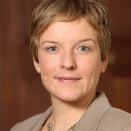Franziska Brantner, Green Party MP in the European Parliament, on the establishment of a European Peace Institute
The establishment of a European Peace Institute would be an important step for strengthening the EU’s mediation and dialogue capacities, thus helping it function more effectively as a force for peace abroad, said Franziska Brantner, foreign policy spokeswoman for the Greens/EFA in the European Parliament (EP). Since the European External Action Service (EEAS) has been limited in this area, the EP supported an initiative from the Swedish and Finnish governments for the founding of a peace institute by placing it on the European agenda in 2010. “As a hub for mediators and peace experts in the EU, its member states, and civil society, the European Peace Institute should ensure that existing national and European capacities and expertise are better utilized and further expanded,” according to Brantner.
The results of a feasibility study commissioned by the EU have been positive. The topic is now being taken up under Ireland’s EU Council presidency in order to win over a critical mass of member states for the project, explained Brantner. In addition, the EP has already established a legal basis to allow EU funds to be given for a European Peace Institute.
Joachim Spatz, MP in the German Bundestag and chairman of the sub-committee for “Civil Crisis Prevention and Network Security,” welcomed the establishment of a European Peace Institute as a meaningful instrument for civil crisis management. But he also pointed out that it will not be able to fully solve the problem of an inadequate political framework, which is determined by the political will of individual member states. He emphasized that there is already consensus among each political group in the sub-committee to support “capacity building” in the civil sector on both the national and European levels. But a European Peace Institute would have to be embedded within the framework of the EEAS and be tightly enmeshed within national structures. An overlap with or even a doubling of existing institutional arrangements must be avoided.
Tobias Pietz, acting head of the analysis department at the Center for International Peace Operations (ZIF), placed the founding of a European Peace Institute into context among the wider debate on the EU’s role as a civil power. It is important that different actors on all levels work closely together and do not become competitors.
The panellists were invited to take part in the discussion by the Alfred von Oppenheim Center for European Policy Studies as part of the “Brussels Briefing” series of events at the DGAP. The discussion was moderated by Almut Möller, head of the Oppenheim Center.
